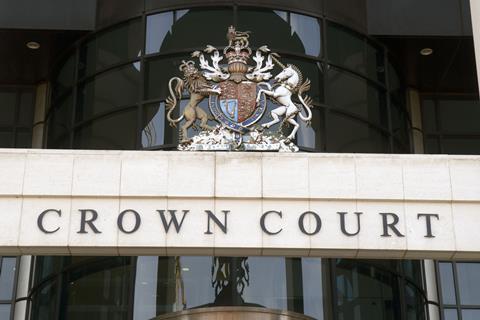The government will miss its target of bringing the Crown court backlog down to 53,000 by March 2025, the Law Society has predicted, following the latest publication of court data.
Figures published by HM Courts & Tribunals Service show that the Crown court backlog stood at 60,898 in February, compared to 57,539 a year earlier. The backlog fell by only 546 cases between January and February this year.
In the magistrates’ court, the backlog stood at 343,519 in February, down from 355,594 a year earlier. However, the open caseload increased by 1,666 between January and February.

Society president Lubna Shuja said: ‘The data cuts through the rhetoric and clearly shows that delays in the criminal justice system aren’t coming down anytime soon. The public need to know they can rely on a functioning criminal justice system.
‘A real commitment from government to proper investment in the criminal justice system is urgently needed to deal with these issues. The Law Society’s five-point plan sets out how the courts backlog can be tackled.’
The Society's five-point plan is: invest in buildings, staff and judges; properly fund legal aid; keep cases out of court by properly funding legal aid for early advice and making people more eligible for it; realistic and achievable competion dates to roll out reliable techology; and better data collection on the effect of remote hearings and claimants' experiences.
Lord chancellor Dominic Raab told the Commons justice committee last November that his department would ‘strive with every sinew’ to hit the 53,000 Crown court target, ‘but I can’t pretend that the impact of the CBA strike has not affected that’.
Raab added: ‘What I am focused on doing is using all the levers we have. We have the extra judges being recruited. We have the extra money going in. We have had the Nightingale courtrooms. We have increased sentencing powers. We are doing more remote hearings. We have the super courtrooms.’



























4 Readers' comments